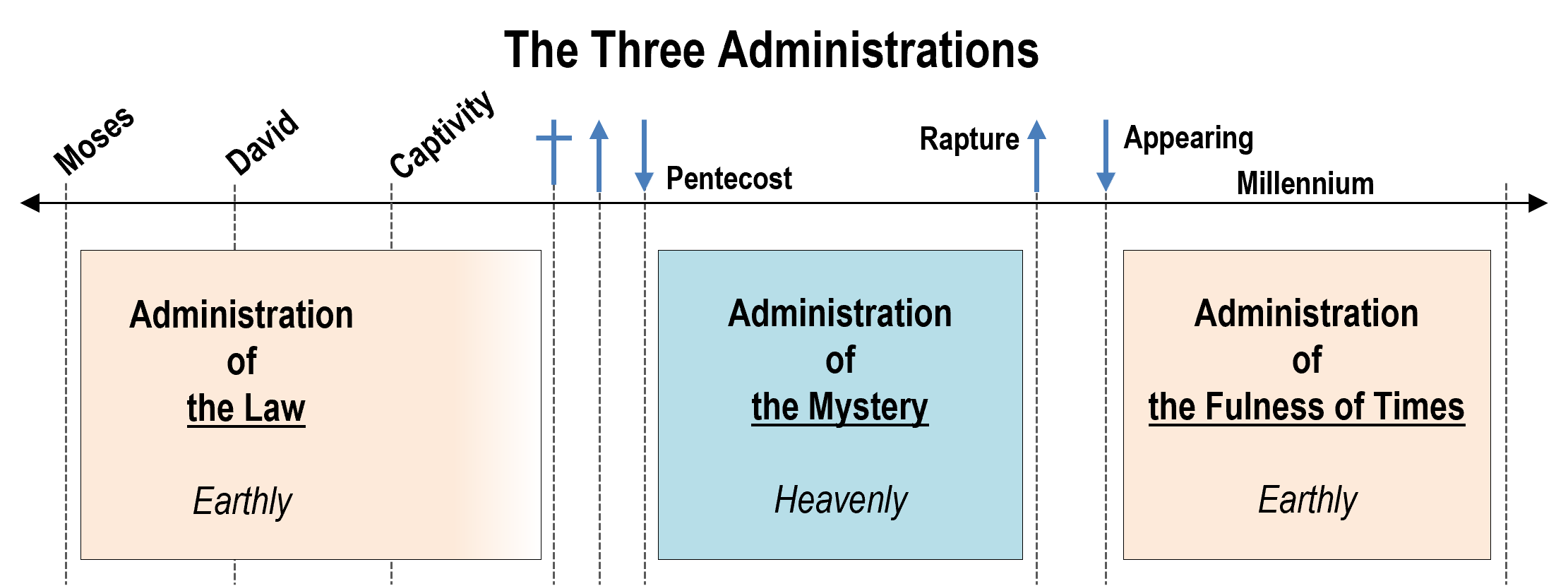Dispensations or administrations are the various ordered dealings of God with men on the earth at different times. The Children of Israel in the Old Testament were in a different dispensation than we are in today. In the Millennium, inhabitants of the earth will live in a different dispensation than we are in today. Having an understanding of these changes in God's dealings is tremendously important. Our behavior as Christians is largely based on the principles that God has given to us in the present dispensation.
- Economy or Stewardship; reference Luke 16:2-4, 1 Cor. 9:17,
- Dispensation or Administration; reference Eph. 1:10, Eph. 3:2, Eph. 3:9, Col. 1:25
- An Economist or Steward; reference Luke 12:42; 16:1; 1 Cor. 4:1, 2; Titus 1:7; 1 Pet. 4:10
- A Governor; reference Gal. 4:2
- A Chamberlain; reference Rom. 16:23
- Further God's dispensation (administration); reference 1 Tim. 1:4
- Are Christians under the Law? No. (Rom. 6:14) Something has changed!
- Are Christians to defend themselves with physical violence? No. (Luke 6:29) Something has changed!
- Was the Spirit of God permanently on earth in the Old Testament? No. (John 3:34) Something has changed!
For a great example of how the "house rules" have changed, look at the restrictions God has put on eating meat and blood. Previous to the flood, God had only approved a vegetarian diet. Then, coming off the ark, Noah was told that man could now eat meat, but not the blood. In the Law, God told Moses that animals were divided into two classes; clean and unclean (Leviticus 11). The added restriction was that Israel couldn't eat the unclean animals. In Acts 10, God told Peter that the restriction on unclean animals had been repealed, but in Acts 15 we find that the prohibition against eating blood still remained. In the Millennium, hunting of animals will be completely eliminated (Hos. 2:18) with the exception of fishing (Ezek. 47:10)! So we can clearly see how the "house rules" changed with regard to meat, and yet the prohibition of blood remained constant!
| Noah to Moses | The Law | The Church | The Millennium | |||
|
All meat allowed
No blood
|
→ |
Only clean animals
No blood
|
→ |
All meat allowed
No blood
|
→ |
Only fish allowed
No blood
|
